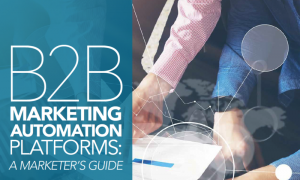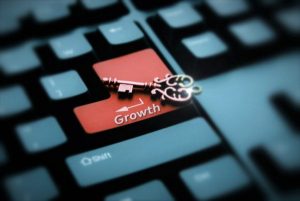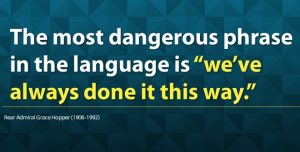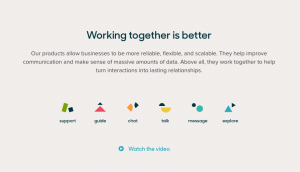— March 24, 2019

geralt / Pixabay
If there is one major theme that will drive business trends over the next decade, it is the idea that purpose should come before profit. In 2018, Larry Fink, of BlackRock fame, penned a controversial letter asking companies to “serve a social purpose.” Fink doubled down on his call to action in 2019, saying that years of frustration over stagnant wages and uncertainty about the future was driving social unrest around the world, and that society, disappointed in governmental institutions’ failure to provide solutions, would increasingly look to the business world to address social and economic issues.
Some businesses fight tooth and nail against this idea of putting purpose first, calling the notion “corporate socialism.” This is shortsighted and to their detriment. Companies do not exist in a vacuum. In order to be successful, they require a healthy and diverse workforce, sustainable access to resources, socially responsible suppliers, customers who can afford to buy their products, and a corruption-free government.
Businesses that embrace the idea of purpose and profit being “inextricably linked” are companies that will drive innovation and achieve long-term profitability. How will this idea play out over the next decade? We’ve outlined some of the biggest and most strategic trends that forward-thinking businesses are adopting in 2019 and beyond.
THE CHANGING ROLE OF HUMAN RESOURCES
For decades, the HR department has played a relatively passive role within businesses, handling the functions of hiring, training, compliance, performance reviews, and the like. Now that we have moved to the post-Digital Revolution age (considered “Industry 4.0”), businesses require more talented human capital than ever before. Thus, companies have seen a need to evolve the HR function to a much more strategic position, giving rise to such roles as “Chief People Officer” or “Chief Happiness Officer.”
More importantly, the best HR teams are the ones that are empowering employees through professional development and learning, which includes training on technical skills and soft skills such as communication and negotiation. Such skills will be increasingly important as work becomes more automated and “uniquely human skills” become more valuable in the job market.
A challenge that many companies face is figuring out how to scale this type of training and development during a fast-growth stage. Some businesses have decentralized the HR function, embedding traditional roles and responsibilities of HR within teams and empowering these teams to take ownership of employee development. At Square, for example, the HR team worked with company executives to build and teach manager training modules. This process transferred accountability to the executives, which ensured that new managers were trained as quickly as possible and that executives invested the right amount of time and commitment to the development process.
THE SHIFT FROM CORPORATE ACTIVISM TO EMPLOYEE ACTIVISM
Corporate activism has been on the rise in the last decade, fueled by polarizing issues such as gun violence, LGBTQ rights, climate change, and more. In today’s social media age, companies that stay silent on these issues sometimes do so to their detriment, as we’ve seen with recent boycott campaigns.
Now that high-visibility activism is not just being fueled by CEOs, it is also being powered by front-line employees, who have been emboldened by the political and economic climate to speak up for their values. Nowhere has that been more strongly felt than at Google, which has experienced a number of employee protests in the last year. In November 20,000 employees staged a walkout to protest how the company handles sexual misconduct claims. A week later, Google said it would end its practice of forced arbitration for claims of sexual harassment or assault. Another example was in April of last year when 4,000 employees, including top-level engineers, protested the company’s involvement in Project Maven, a Pentagon program that uses artificial intelligence on the battlefield. Employees said, “We believe that Google should not be in the business of war.” Two months later, Google announced that it would not renew its military contract for 2019.
As the boundaries between work and life increasingly blur, employees have made it clear that they want more from their employers than just a paycheck. Nearly nine out of ten millennials would consider taking a pay cut to work at a company whose mission and values align with their own.
The companies that will be leaders in the future are those businesses that do not attempt to suppress employee voices, but rather facilitate dialogue and remain committed to their values. Salesforce, for example, recently hired its first Chief Ethical and Humane Use Officer in response to protests against the company for keeping its contract with the U.S. Customs and Border Patrol. As CEO Marc Benioff said, regarding the new department, “…every company’s going to need to be able to have a structured conversation around humane use.”
ETHICALLY SOURCED DATA
Amid a flurry of data privacy scandals over the past few years, from the Equifax data breach to Facebook’s Cambridge Analytica scandal, consumer trust in the ability of companies to protect personal information has reached a historic low. However, despite growing consumer mistrust in data collection, the appetite for big data continues to grow, driven largely in part by new technologies that feed off of it (e.g., the Internet of Things) and hungry marketers or campaigners looking to quickly target and influence very specific groups of people.
The dissonance between the two has given rise to a new concept: “ethically sourced data.” It is a movement that asks companies to maintain the highest ethical standards in the collection and use of personal data. In essence, companies must collect data with full consent from the consumer, allow the consumer to review or modify it, and keep it only as long as is necessary. In using the data, companies must not use it for purposes that are morally objectionable—for example, in selling predatory loans to financially risky individuals or inciting hate campaigns against ethnic groups.
Governments have begun to step in to help regulate this new battleground, but the results have often created more chaos than order. Last year’s implementation of the General Data Protection Regulations of the EU in May 2018 had many businesses scrambling to revisit their privacy policies and throw up new cookie notifications on their website. But, confusion on how to interpret and implement GDPR has left many companies adopting a risky “wait and see” approach to compliance. Despite doubts that GDPR will ultimately provide better data protection to consumers, one thing is certain: its emphasis on consumer consent (the “opt-in” principle) has begun to flip the economics of the industry, incentivizing companies to build consumer trust instead of having blanket access to data.
Ultimately, the onus will be on companies to make data protection a part of their core values, instilling the principles of privacy throughout the organization, from the way IT collects and stores data, to how marketing and sales use data for outreach, to the way HR and operations manage employee data.
MOVING FROM WORK-LIFE BALANCE TO WORK-LIFE INTEGRATION
Burnout is real, and it has already become one of the major defining issues of this generation. And, despite 40 years of talk about finding work-life balance, it seems that most of us haven’t exactly found where that equilibrium sits.
Luckily, the conversation is starting to change. Tracy Brower, sociologist and author of Bring Work to Life by Bringing Life to Work, says we need to throw out the concept of work-life balance all together. “Work-life balance artificially separates work and life,” says Brower, who emphasizes that “balance” is a limiting concept that operates in an “either/or” mentality. Instead, we must accept that “we can have it all, but not all at once.”
The better, and more realistic, concept is work-life integration, which is an approach that acknowledges that life comprises work along with home/family, community, and health/well-being. The goal isn’t trying to achieve an equilibrium, but rather to find fulfillment in all areas of life.
Brower asserts the importance of companies offering better support to help employees navigate the demands of work and life. It’s more than just health insurance and free office snacks—these are formal benefits, policies, and practices that help employees achieve a sense of fulfillment, and are also in line with the values and culture of the company. For example, if the company values self-improvement, then support could include subsidized tuition or class reimbursements. Or, if the company values innovation, then support could include daily time for extracurricular creative projects.
It is imperative that company leaders set an example of work-life integration. If managers and executives don’t promote or participate in your organization’s work-life support, then neither will employees. Leaders must live their values in order for the rest of the team to follow suit.
A version of this post originally appeared here.
Business & Finance Articles on Business 2 Community
(53)







